Demirtaş questions missing $128 billion during Kobane trial
The trial of 108 HDP members over the 2014 Kobane protests began on April 26 in the capital Ankara. Former HDP co-chair Demirtaş, who connected to the hearing via the video-conferencing system SEGBİS, was at one point seen holding a paper that read "Where is 128 billion dollars?" in a reference to the missing reserves of $128 billion from the Central Bank.
Duvar English
A Turkish court on April 26 opened the trial of dozens of members of the pro-Kurdish Democratic People Party (HDP), including its former co-chairs Selahattin Demirtaş and Figen Yüksekdağ, over protests which broke out during an ISIS assault on the Syrian Kurdish town of Kobane in 2014.
Thirty-seven people died in the protests, which were triggered by accusations that Turkey's army stood by as the jihadists besieged Kobane, a border town in plain view of Turkey.
The HDP says this week's case is another step by authorities to damage the party after a top prosecutor filed a case for the party's closure last month over alleged links to the Kurdistan Workers' Party (PKK). The HDP denies such links.
The 108 defendants are charged with 37 counts of homicide and disrupting the unity and territorial integrity of the state. While Ankara accuses the HDP of inciting violence, the HDP says that it was doing everything it can to prevent bloodshed via being in contact with government officials.
"We will invalidate this conspiracy case, enlarge the fight for democracy, spoil the political power's calculations and will certainly save this country from this authoritarian attack altogether," HDP co-chair Mithat Sancar said, speaking outside the courthouse in Ankara's Sincan prison complex.
Police tried to prevent journalists from taking pictures in front of the courthouse by placing themselves between HDP members and reporters and putting up their shields.
Sincan'da Kobane davasındayız. Basın görüntü almasın diye polis çok çaba harcıyor. pic.twitter.com/ipDmTF0R9C
— Veli Saçılık (@velisacilik) April 26, 2021
While police spent extensive efforts to prevent HDP members from speaking to journalists, a pro-government group was allowed to open banners and chant slogans against the pro-Kurdish party.
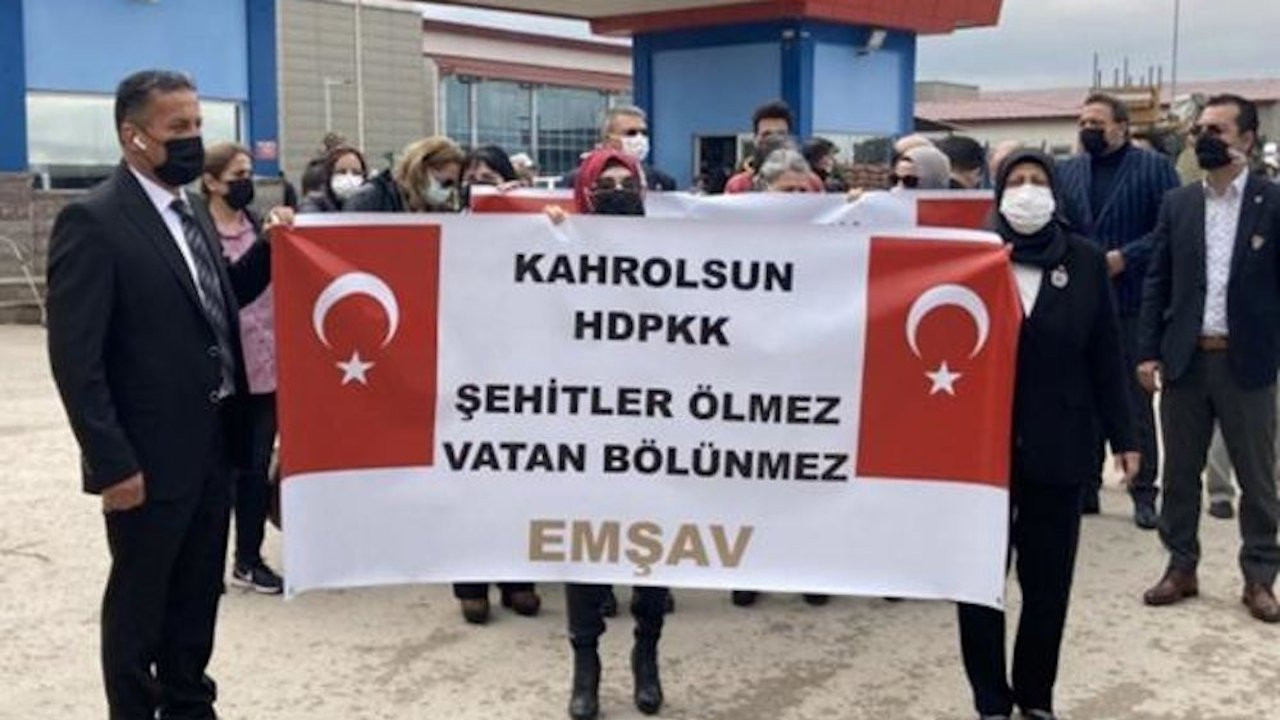
The trial began in a tense environment since all of the lawyers of the politicians left the courtroom in protest of the chief judge, who ordered a number of lawyers to remain outside, citing pandemic and security measures.
Savunma hakkı engellenen avukatlar, mahkeme girişinde açıklama yaptı. #HDPyargılıyor pic.twitter.com/C91H1xntEk
— 6-8 Ekim Gerçekleri (@HDPonline) April 26, 2021
HDP members told the court that a trial without the right to defense can't be carried out, adding that they won't answer any of the questions in the absence of all of their lawyers.
"We are here to speak and not remain silent. The number of lawyers was conveyed, so it was known that the courtroom would be crowded. If you really want the trial to go on, you can give a break, solve this issue and then continue," Demirtaş said, connecting to the hearing via the video-conferencing system SEGBİS.
#Demirtaş ve arkadaşlarımız bugün yargılanmak için değil faşizmi ve karanlığı yargılamak için duruşma salonundalar. Bu yalan rejiminin hakikat karşısında diz çökeceği günler yakındır. #HDPyargılıyor pic.twitter.com/VteUp33v71
— HDP (@HDPgenelmerkezi) April 26, 2021
The lawyers were then allowed to enter the courtroom.
At one point, Demirtaş was seen showing to the SEBGİS camera a paper reading "Where is 128 billion dollars?" referring to the missing reserves of $128 billion from Turkey's Central Bank.
The political opposition has been recently pressing the government to account for $128 billion in sales in 2019 and 2020, which were made by state banks and backed by Central Bank swaps, sharply depleting its FX reserves.
The HDP has come under increasing pressure from President Recep Tayyip Erdoğan's ruling Justice and Development Party (AKP) and its far-right Nationalist Movement Party (MHP) allies in recent years.
Those steps culminated in March when a top prosecutor filed a case with the Constitutional Court for the closure of the HDP over alleged links to the PKK. The indictment was sent back on procedural grounds but can be re-submitted. The HDP denies the charges.
In December, the European Court of Human Rights called for Demirtaş's release, saying he had been held for more than four years in prison to limit pluralism and debate. It said the evidence did not back up the terrorism charges directed at him, but Erdoğan ruled out his release and called Demirtaş a "terrorist."

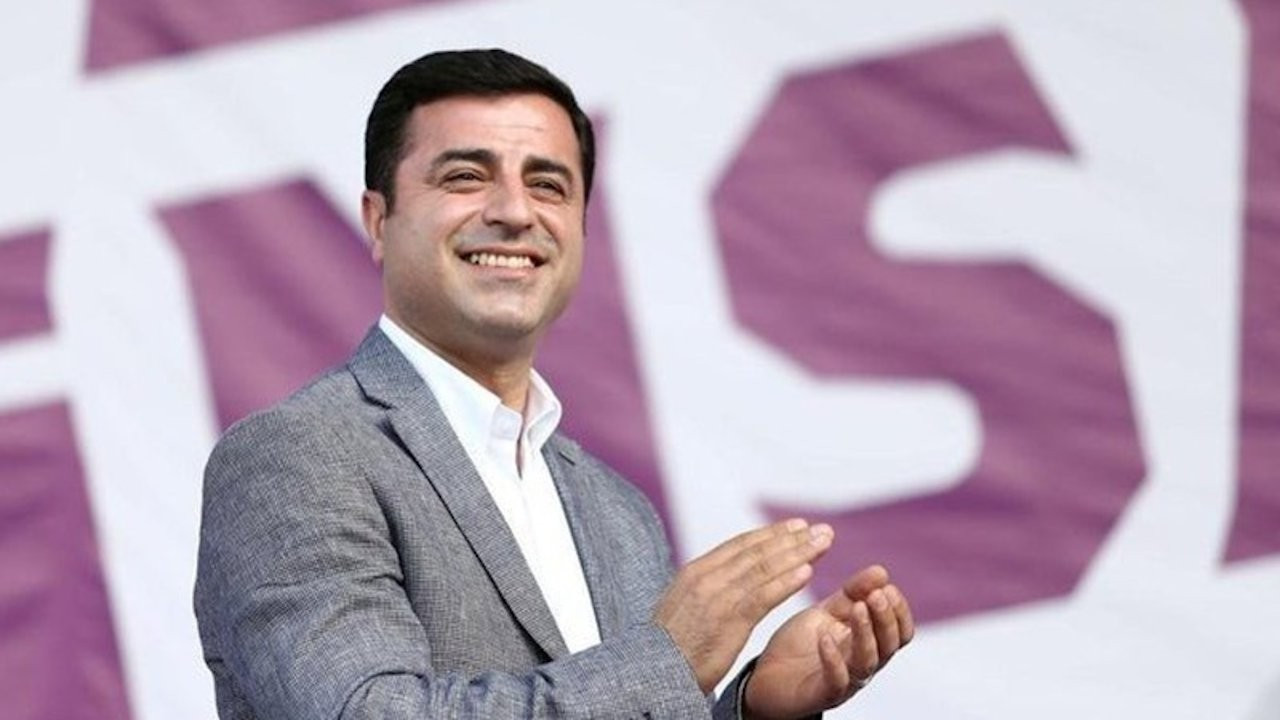 Top Europe rights court asks Turkey to submit defense regarding Demirtaş's imprisonment in Kobane casePolitics
Top Europe rights court asks Turkey to submit defense regarding Demirtaş's imprisonment in Kobane casePolitics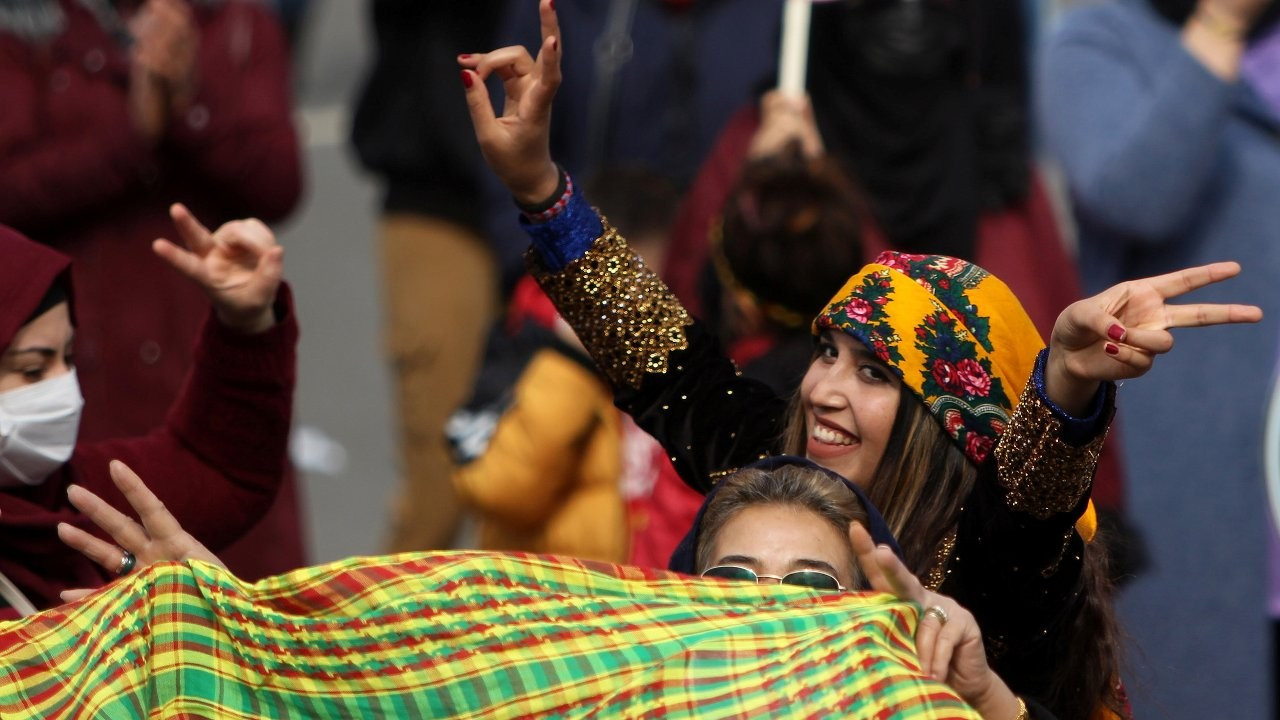 We should all learn to rethink democracy from the Kurds: ZizekWorld
We should all learn to rethink democracy from the Kurds: ZizekWorld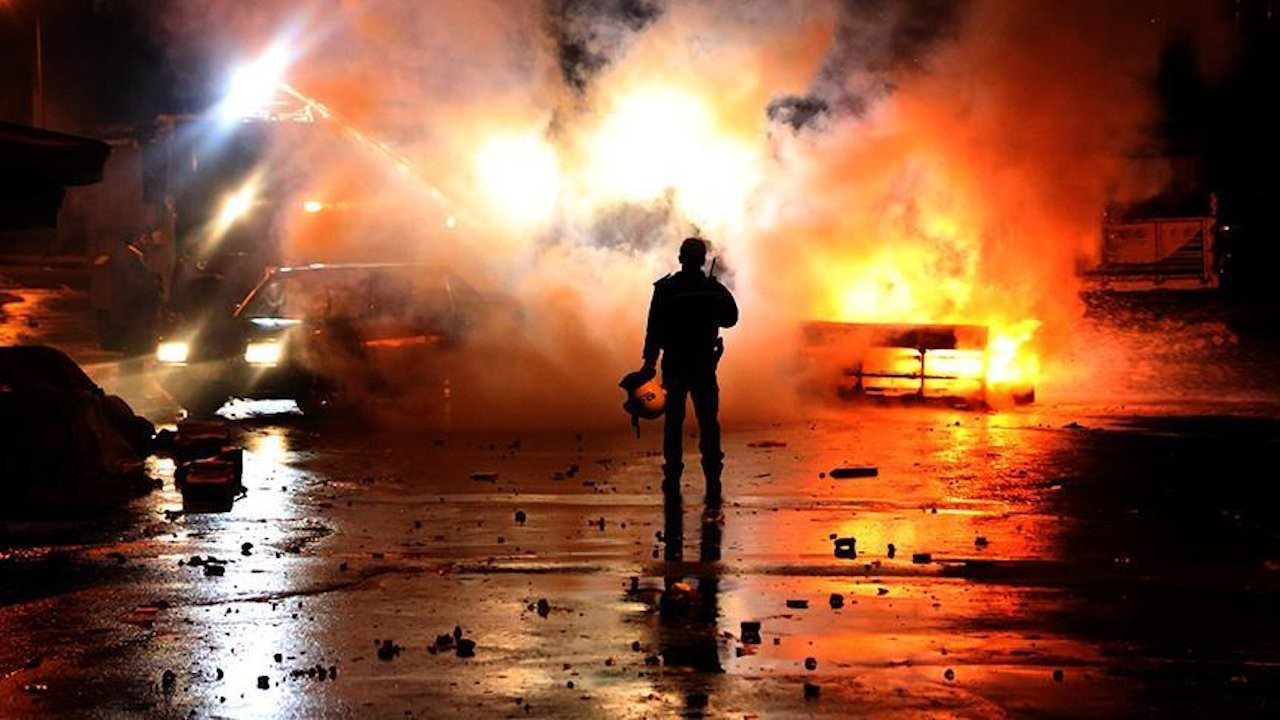 Indictment blames HDP for all deaths that occurred during 2014 Kobane protestsPolitics
Indictment blames HDP for all deaths that occurred during 2014 Kobane protestsPolitics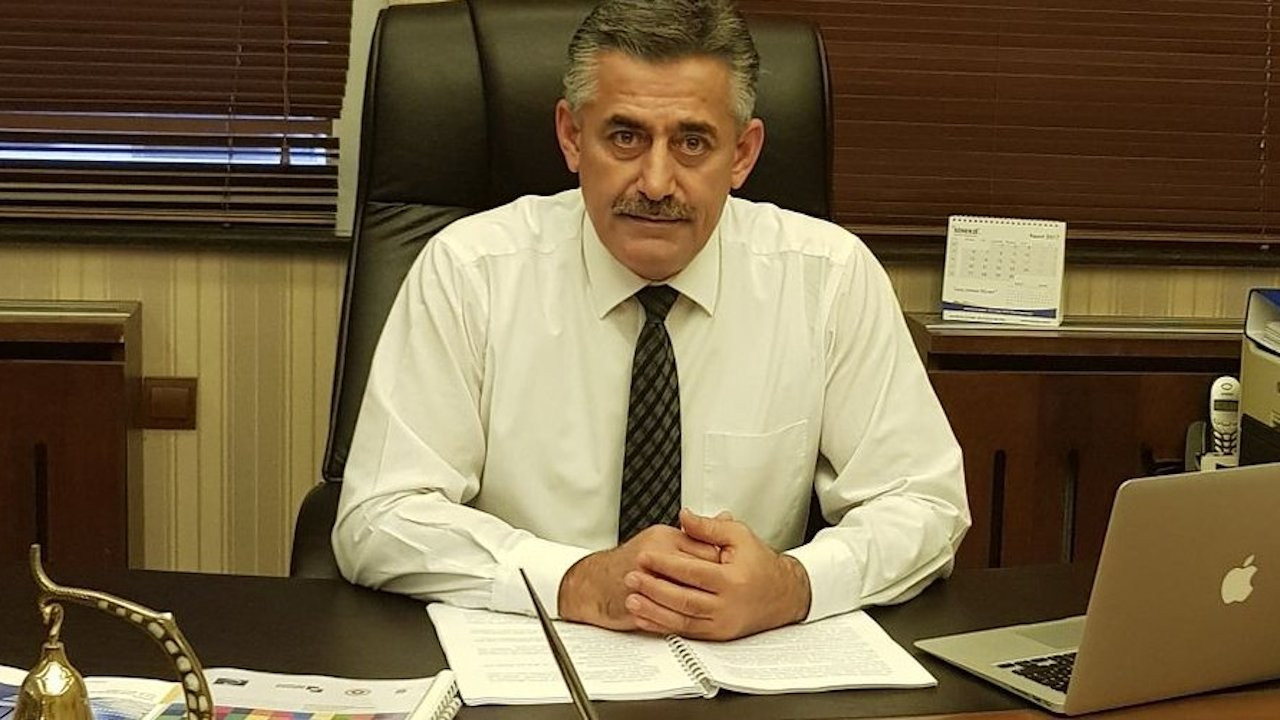 DEVA founder targets HDP for remembering Armenian genocide: I hope you become extinct tooPolitics
DEVA founder targets HDP for remembering Armenian genocide: I hope you become extinct tooPolitics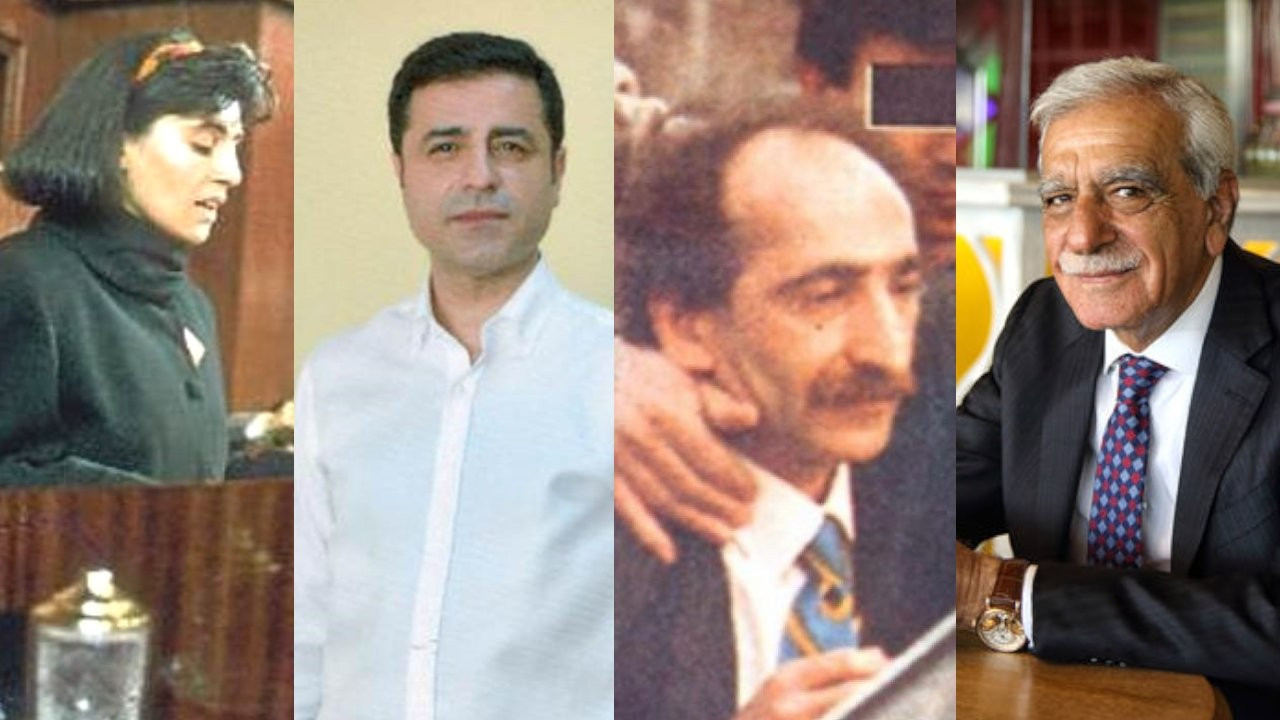 History repeats itself: Turkey seeks closure of a pro-Kurdish party - yet againPolitics
History repeats itself: Turkey seeks closure of a pro-Kurdish party - yet againPolitics